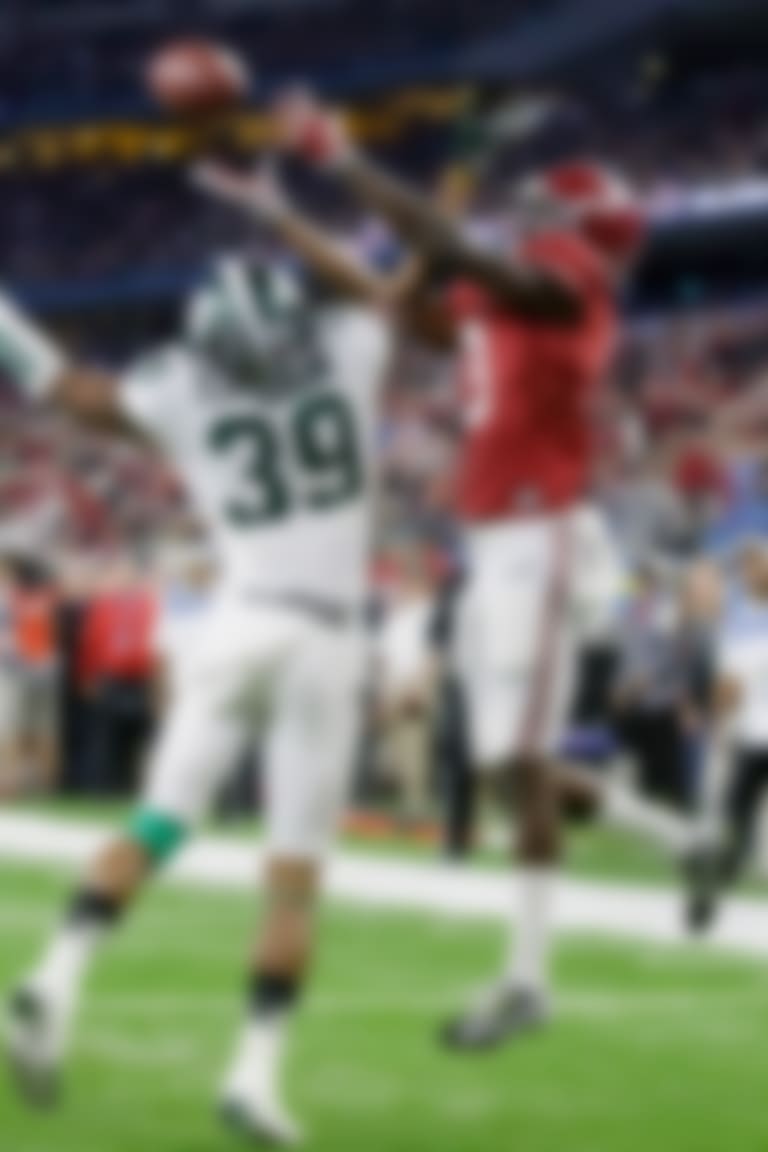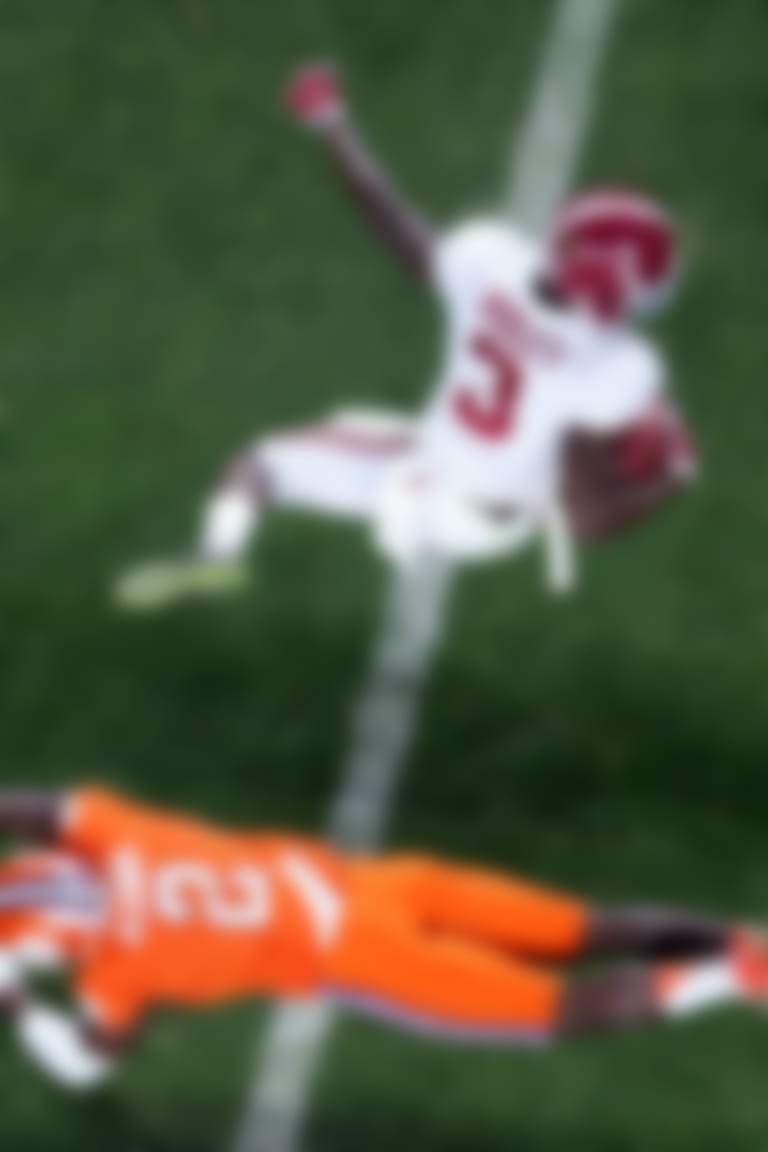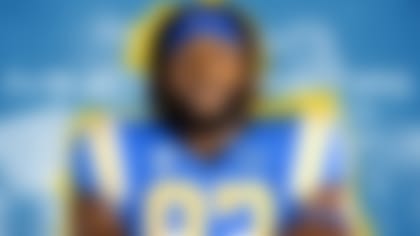His father was deported when he was 7, the same year he landed in foster care. But that didn't stop Alabama WR Calvin Ridley sprinting past the competition.
By Chase Goodbread | Published Nov. 1, 2017
TUSCALOOSA, Ala. -- Like any parent, Kassna Daniels waited patiently for her son to take his first step. The progression began normally; he sat up, then crawled, then stood. But what happened next was anything but normal: His first step didn't follow; his first step was instead a stride.
"He never walked; he started running at 7 months," Daniels said. "From the time he could stand, he went straight to running."
That's how Calvin Ridley's speed truly made its debut, but for debuts of other sorts, he had much more in store.
In his first game for Coconut Creek (Fla.) Monarch High, he broke a kickoff return for a touchdown. Two years later, as a true freshman at Alabama, he stepped into Amari Cooper's massive shoes and became the Crimson Tide's new WR1.
Ridley's blazing speed has been a constant marker on his football accomplishments, and it leaves an impression wherever he goes. To wit, consider the way former Alabama assistant Mario Cristobal, ex-Tide quarterback Jake Coker, and Florida Fire 7-on-7 coach Dennis Marroquin answered the same question in separate interviews: What single word would you use to describe Ridley's game?
"Explosive," they all answered.
Ridley's path to the cusp of an NFL career hasn't come easily; he's overcome a difficult childhood and, at one point, even football was taken away from him. Now, he's approaching yet another debut, this time as an NFL rookie, and scouts expect him to be among the true prizes at his position.
And if history is any indication, that debut will be explosive, too.
Tales of Ridley's speed are endless, but Parker Barrineau might have the best story of them all.
Players on the school's vaunted defense, loaded with draft prospects every year, have been known to chide Alabama offensive coordinators who can't move the ball on them in practice. Lane Kiffin, whose ego as a play-caller and offensive mind has been well-documented, didn't always appreciate it.
But Ridley was always his best answer.
"If the defense was pounding on us for too long, Kiffin would get pissed," said Barrineau, a reserve wide receiver for Alabama from 2012 to 2015. "(Cornerback) Tony Brown or someone else on defense would talk some trash to him, like, 'Kiffin, you can't even get a first down on us.' Whenever Lane had had enough, he'd grab Calvin and send in a go route. And Calvin would burn them deep almost every time. That was his best way to make the defense stop talking so much."














